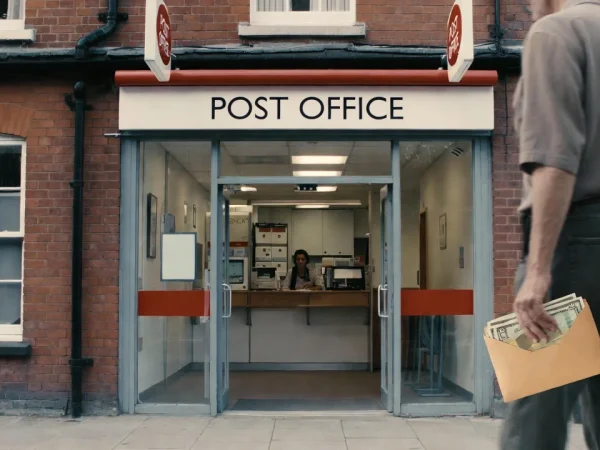
Exploring Settlement Options After a Personal Injury Accident
The most inconvenient truth about personal injury settlements,
Most people accept the first insurance offer they receive, assuming it to be a fair amount. The reality could not be further from the truth.
Insurance companies are in business to pay out the smallest amount possible.
Close to 95% of all personal injury cases are settled before trial. The majority are for less than what a victim would receive through a court-ordered award.
Knowledge is power, and understanding your rights following a personal injury accident could quite literally mean the difference between a few thousand dollars or a fair and equitable settlement that covers your losses in full.
In this article, you will find:
- Why Most Settlement Offers Are Low-Ball
- What Your Personal Injury Case Is Really Worth
- The Settlement Negotiation Process That Works
- When to Walk Away and Go to Trial
- How Legal Representation Changes Everything
Why Most Settlement Offers Are Low-Ball?

Allow me to share a little-known secret with you…
The first settlement offer you receive is not a generous offer to end your dispute. It is a method of the insurance company to save as much money as possible.
They would much rather you settle your claim for $10,000 and walk away than pay the legitimate value of $50,000.
This is business for them. Saving $40,000 multiplied by thousands of cases means they pocket millions in extra profit.
Insurance adjusters are trained in the art of negotiations and will throw out everything in their playbook to dissuade you from pursuing more money.
- “This is a very generous offer”
- “You should take this before we change our minds”
- “The trial will be risky and expensive”
- “I hope you understand that this is the best we can offer”
Don’t be fooled. Recent statistics reveal that individuals who waited longer before settling received settlements that were $30,700 higher on average.
What a significant amount of money to be patient with your settlement demand, right?
The fact of the matter is that you have rights following a personal injury accident, and you should not settle for a low offer.
However, before you can know what your settlement should be, you must first understand the factors that determine its value.
What Your Personal Injury Case Is Really Worth?
Settlement amounts vary significantly based on your situation.
The current numbers might surprise you:
- Soft tissue injuries range from $2,000 to $25,000
- Broken bones that need surgery: $100,000 – $500,000
- Medical malpractice averages: $423,607 (National Practitioner Data Bank)
- Spinal cord injuries: Often over $1 million with catastrophic injuries that can top $10 million if you are fully paralyzed
Don’t get stuck on the above numbers because a successful personal injury settlement is based on the following:
- Medical expenses: Both current and future treatment costs
- Lost wages: Income you’ve missed and will continue to miss
- Pain and suffering: The physical and emotional impact
- The degree of fault: How much the other party is responsible
The severity of your injury will play the most significant role in how much you are awarded in settlement.
For example, a broken arm that fully heals in six weeks will be nowhere near as much as a traumatic brain injury that will have long-term implications for the rest of your life.
Future medical expenses are often the most substantial part of your settlement.
The Settlement Negotiation Process That Works
The process of settlement negotiation can be broken down into specific steps that lead to a successful negotiation.
The first is waiting for maximum medical improvement.
Accepting an early settlement offer because your injuries are not fully diagnosed can leave money on the table.
Waiting to get an accurate diagnosis, including future medical needs, and projected lost wages and employment will ensure you get a fair amount.
Your attorney will then send a demand letter to the insurance company.
This letter details the accident, places fault on the other driver, and includes a demand for a specific amount in settlement.
The insurance company will typically make a counteroffer. This is where negotiation begins in earnest.
Here is where most people go wrong:
Negotiating from a point of emotion and frustration rather than logic and reason.
The insurance company does not care that you’re angry. They only care about documentation, medical liability, and expert witness testimony.
A proven settlement negotiation process is one of the many benefits of working with a Kaufman Injury Law attorney.
When to Walk Away and Go to Trial?
Unfortunately, settlement negotiations don’t always lead to a reasonable agreement.
A key indicator to watch is the insurance company’s unwillingness to budge on a lowball offer.
If they are not negotiating in good faith, you may have no other option but to go to trial.
However, trials come with additional risks and costs.
Only about 4% to 5% of personal injury cases go to trial. About 50% of plaintiffs win their case if they go to trial.
Car accidents have a much better chance of success at about 61% win at trial.
On the other hand, medical malpractice cases are a whole different ballgame. Only 19% of those cases succeed.
Factors to Be Considered Before Deciding to Go to Trial Include
- The strength of your case
- The potential trial award vs. the settlement offer
- The time and financial cost of going to trial
- Your specific situation
A good attorney will help you make the correct decision about when to go to trial based on your circumstances.
How Legal Representation Changes Everything?

If there is one section of this article you should take to heart, it would be this.
Legal representation will not only improve your odds of a settlement but will dramatically increase the amount of the payout you receive.
Insurance companies recognize when someone does not have legal representation. They also know that that person probably does not know the real value of the claim.
But when a skilled lawyer is on your side, the whole dynamic changes.
Lawyers know how to investigate accidents, gather evidence, work with medical experts, and calculate the true settlement value.
They are familiar with the legal process and what works and what does not with the insurance company.
They are also not emotionally invested in your case as you are. This allows them to make objective decisions about whether a settlement offer is worth accepting or should be countered.
Conclusion
Personal injury settlements are not about becoming an overnight millionaire.
Settlements are all about getting a fair amount that compensates you for your losses and allows you to continue living your life.
Understanding your rights following a personal injury accident is of the utmost importance because:
- Insurance companies will try to settle your case for the lowest amount possible
- The real value of your case can be much higher than the first offer you receive
- Negotiations take skill and experience
- Legal representation dramatically changes your outcome for the better
The personal injury settlement process can be daunting and frightening when you’re in the middle of it, not to mention trying to recover from your injuries.
However, you have rights, and you should not be bullied or railroaded into an unfair settlement.
Take the time to educate yourself on the process, gather all the evidence you need, and find experienced legal counsel.
Your future self will thank you.





